HANSON FAMILY FOREST Fungi Pholio
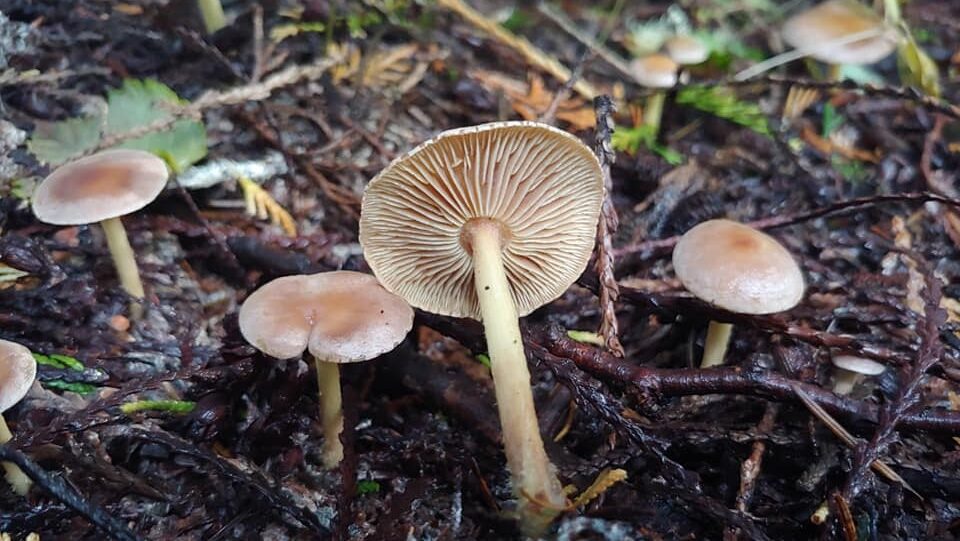
NNRG’s Director of Forestry Kirk Hanson keeps a log of mushrooms he finds in his family’s forestlands, both edible and inedible. The ecology/seasonality notes below refer to these specific mushrooms finds.
Remember, only pick and eat mushrooms if you are confident in your identification skills. Do not rely on the edible/medicinal notes below to determine whether a mushroom is edible. Always seek multiple sources and only eat a mushroom if you are 100% sure in your ID. Just like in Kirk’s forest (see the Death Cap mushroom below) many of the mushrooms you encounter could be poisonous.
Many regional mycological societies offer mushroom ID clinics and mushrooming classes – find one near you!
Species: Laccaria amethysteo-occidentalis
Edible/Medicinal: Edible, but not much flavor.
Ecology: Beneath mid-aged cedar. Mycorrhizal with conifers.
Seasonality: November
Species: Marasmiellus peronatus, “Fuzzy foot”
Edible/Medicinal: Not edible
Ecology: 30 year-old Douglas-fir stand
Seasonality: Late summer
Species: Fomitopsis pinicola, “Red belted conk babies”
Edible/Medicinal: Medicinal. Too tough to be edible.
Ecology: Young Douglas-fir log
Seasonality: April
Species: Laccaria laccata
Edible/Medicinal: Edible and mild tasting
Ecology: 30 year-old Douglas-fir stand
Seasonality: April
Species: Laccaria spp
Edible/Medicinal: Edible and mild tasting.
Ecology: 30 year-old Douglas-fir stand
Seasonality: November
Species: Marasmiellus candidus
Edible/Medicinal: Unknown. Too small to have culinary significance.
Ecology: 30 year-old Douglas-fir stand. Growing on small twig.
Seasonality: April
Species: Ganoderma oregonense
Edible/Medicinal: Medicinal
Ecology: 30 year old Douglas-fir stand. Growing on dead wood just beneath surface of soil.
Seasonality: April
Species: Amanita phalloides, Death Cap
Edible/Medicinal: Poisonous
Ecology: 30 year-old Douglas-fir stand
Seasonality: September

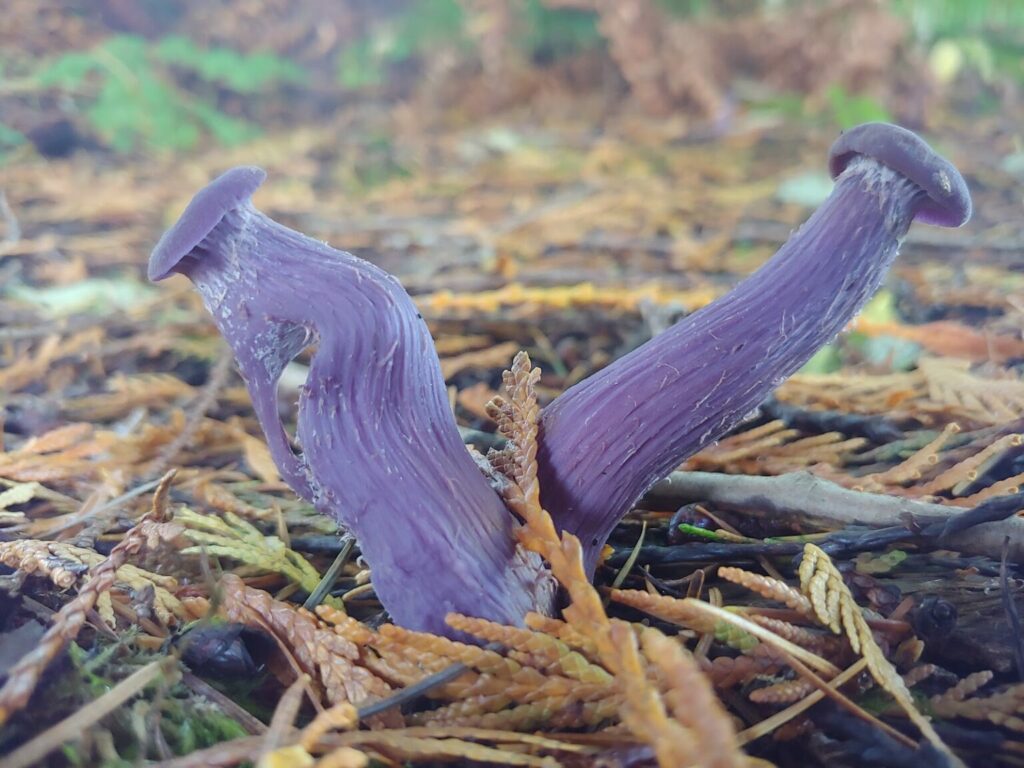
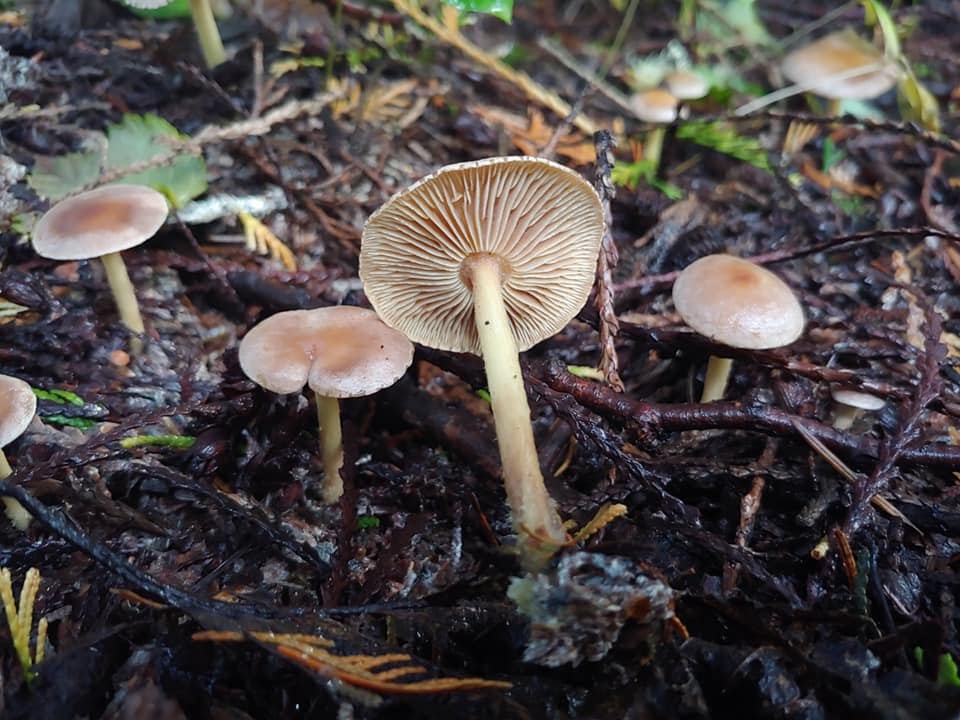
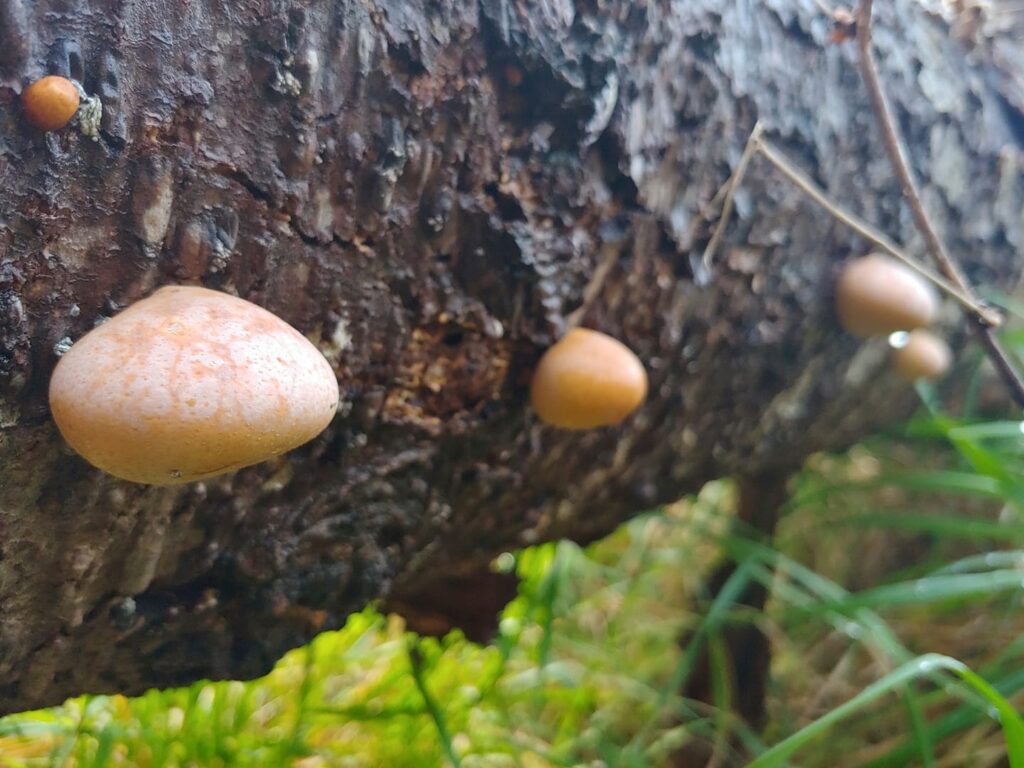
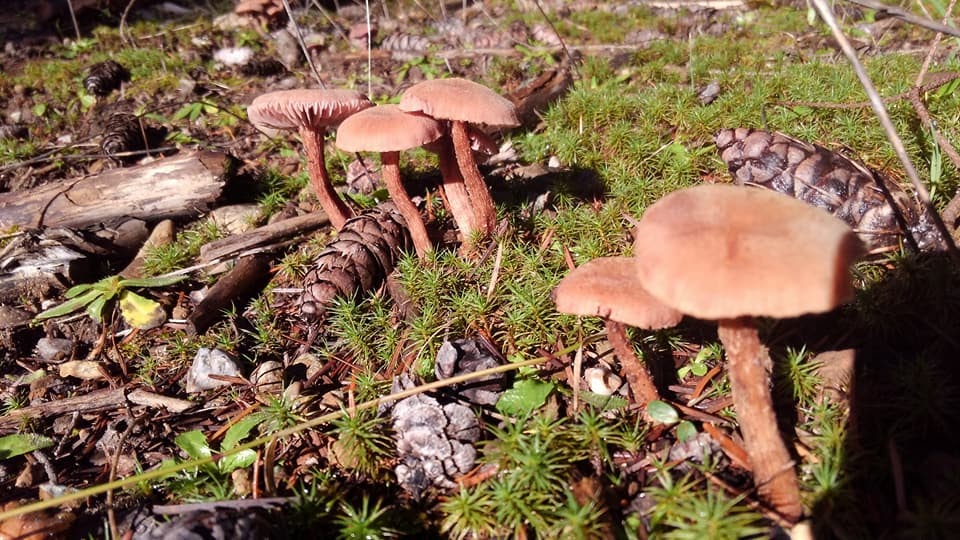
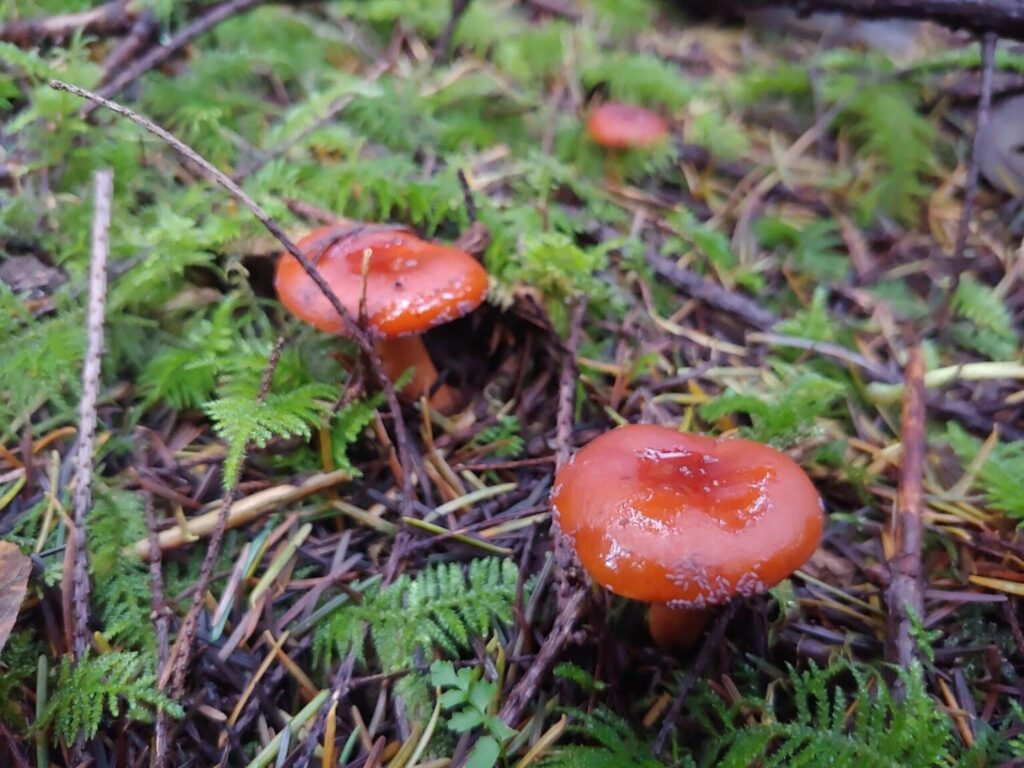
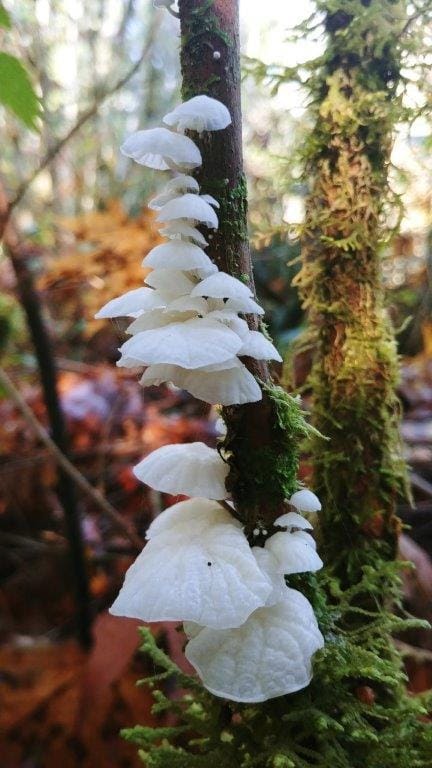

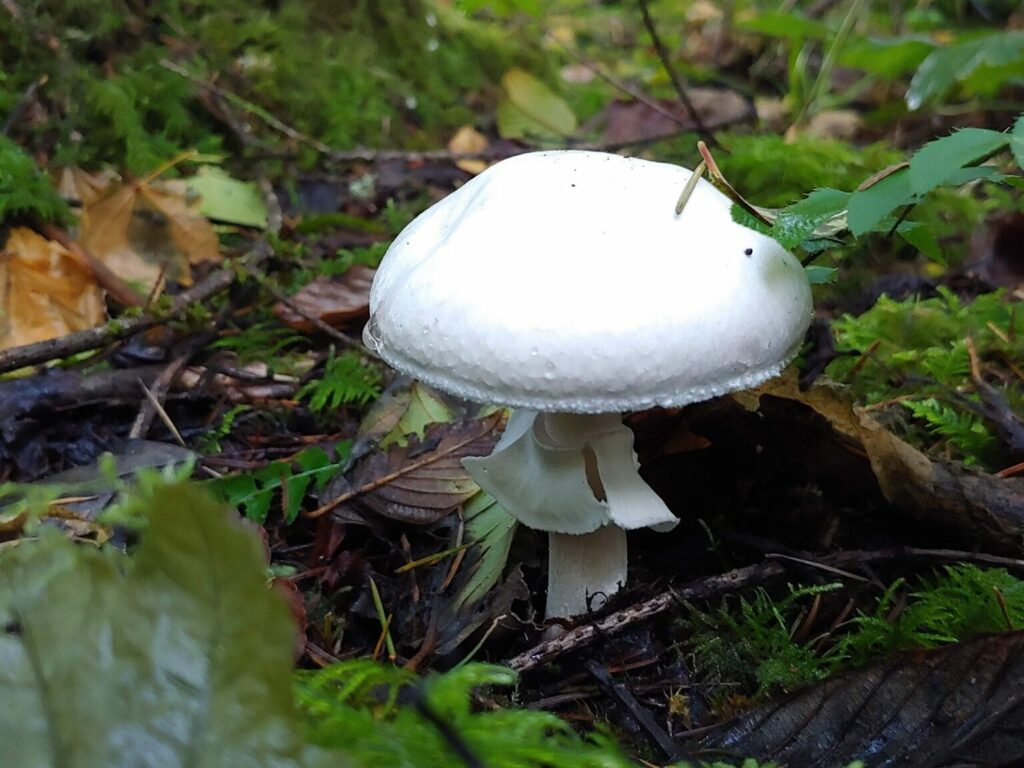
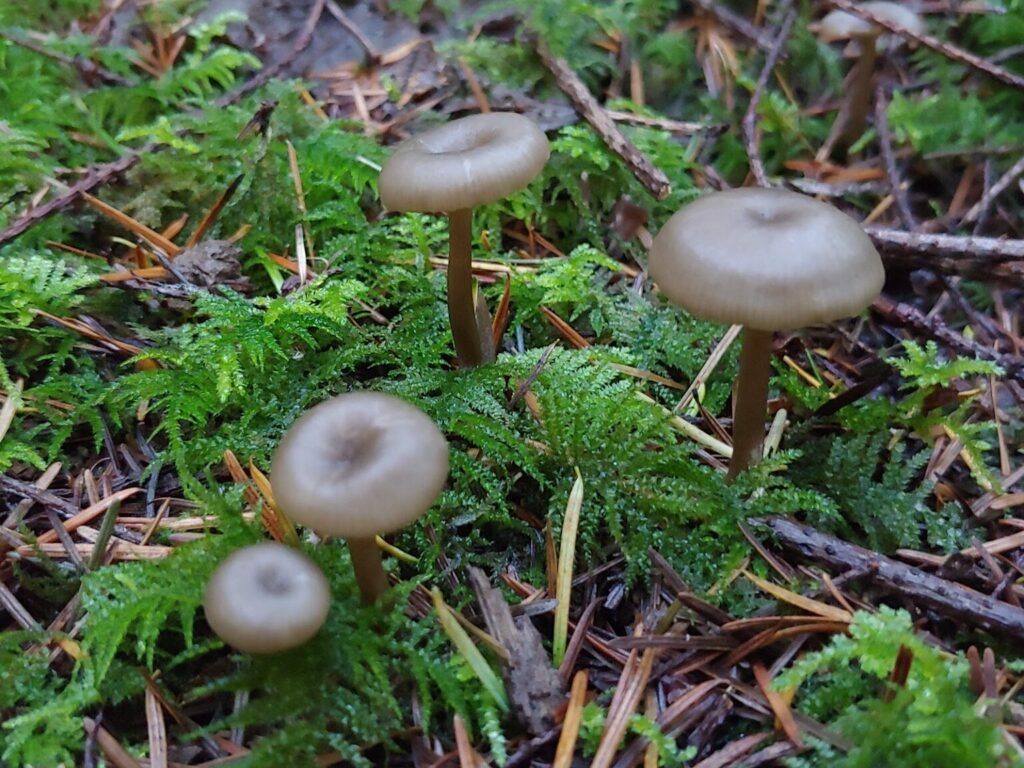
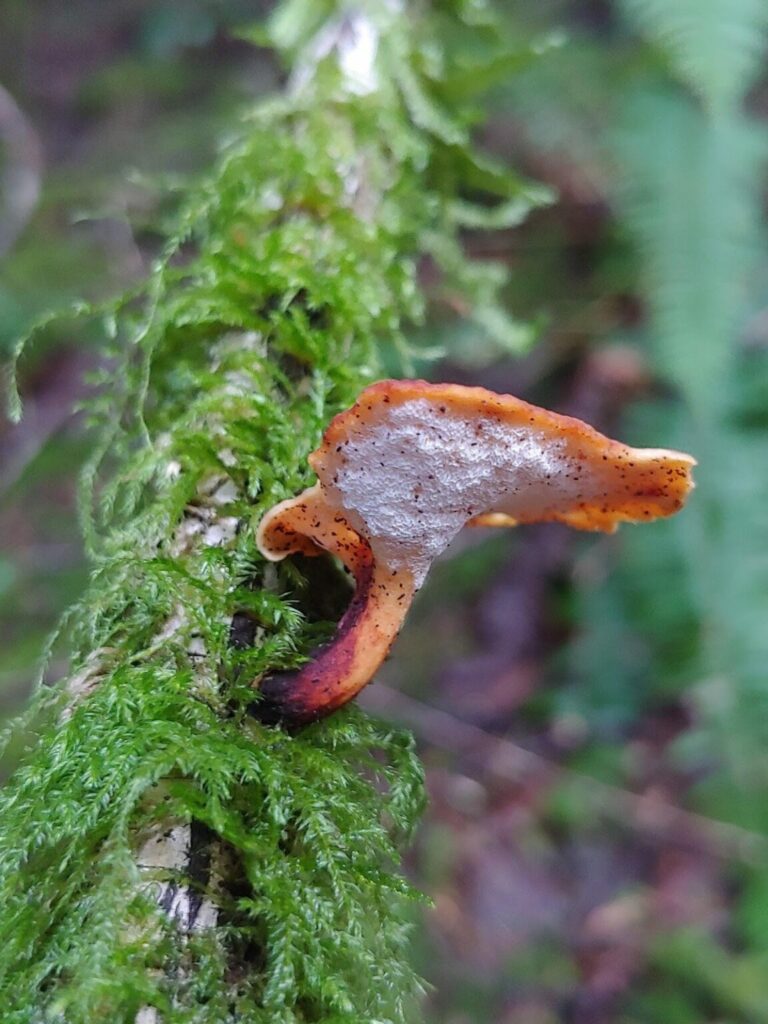
Leave a Reply